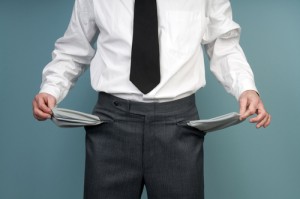 Lenders who loan money for the purchase of a vehicle usually retain a security interest in the vehicle. This means that if the borrower misses payments to the lender due under the promissory note then the lender can repossess the vehicle. The lender doesn’t have to give the borrower notice that their vehicle will be repossessed. I have heard stories of clients who are grocery shopping and come out of the store to find their vehicle is gone. Hopefully they didn’t purchase many perishables. I have had clients left stranded at work with no way to get home. Murphy’s Law provides that your car will be repossessed at the most inconvenient time possible.
Lenders who loan money for the purchase of a vehicle usually retain a security interest in the vehicle. This means that if the borrower misses payments to the lender due under the promissory note then the lender can repossess the vehicle. The lender doesn’t have to give the borrower notice that their vehicle will be repossessed. I have heard stories of clients who are grocery shopping and come out of the store to find their vehicle is gone. Hopefully they didn’t purchase many perishables. I have had clients left stranded at work with no way to get home. Murphy’s Law provides that your car will be repossessed at the most inconvenient time possible.
There are ways to stop repossession of your vehicle. Chapter 13 bankruptcy puts an automatic stay into effect which prevents all collection efforts against the debtor or their property. This means that once a case is filed the creditor cannot repossess the vehicle without permission from a bankruptcy court. Bankruptcy courts don’t like to lift the stay. If the debtor keeps the vehicle insured and makes their monthly bankruptcy payments to the trustee, then barring extraordinary circumstances, the creditor doesn’t have much chance of convincing a court to lift the stay.
In fact, you may even be able to get your vehicle back after it has been seized by the creditor. In Texas, debtors have ten days to redeem a vehicle after it has been repossessed. Usually this means that the debtor has ten days to pay off the note secured by the vehicle in full. However, in the context of a bankruptcy case, this means that the creditor cannot transfer title to the vehicle for ten days, which gives the debtor time to file a bankruptcy case, and prevent sale of their car. Keep in mind that it is always best to get the case filed before the car is seized. It can take several days to get the vehicle back after a bankruptcy case is filed, and there may be some damage to the vehicle as a result of it being towed.
The bottom line is that if you are in danger of losing your vehicle because you are behind on your payments, or it has been recently repossessed, then consider filing bankruptcy. Doing so will protect your vehicle and give you an opportunity to get caught up on your payments.